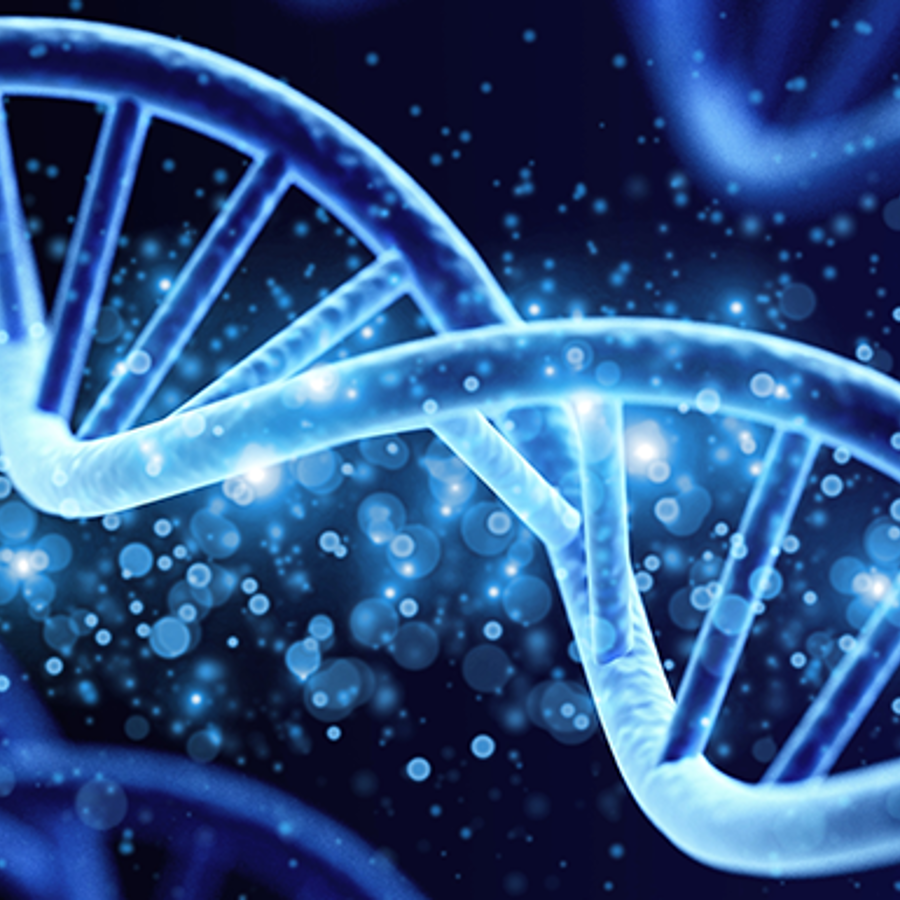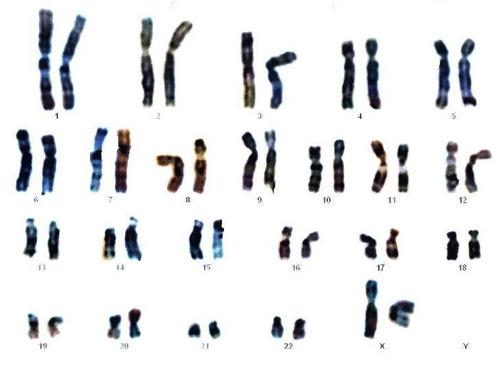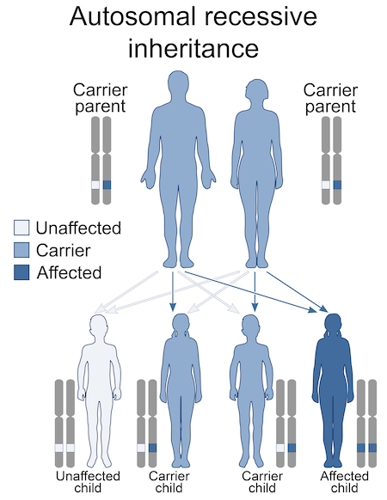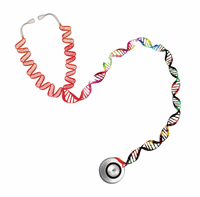
Does having closely related parents mess with your DNA?
September 21, 2012

- Related Topics:
- Complicated family trees,
- Autosomal recessive inheritance,
- Carrier,
- Intermarriage
A high school student from Michigan asks:
"I never really understood what happens if you are inbred. I know it means your parents are closely related, but does having closely related parents mess with your DNA?"
That is an interesting question with an equally interesting answer! Having closely related parents doesn’t exactly ‘mess with your DNA’, as you put it. But it does mean that you have less variety in your DNA. And having variety can be very important to your health.
Less variety in your DNA can increase your chances for getting rare genetic conditions. You may have heard of some of these: albinism, cystic fibrosis, hemophilia and so on.
Less variety in your DNA can also make you unhealthy in another way – it can weaken your immune system so you can’t fight off diseases as well. You can end up a very sickly person!
Now of course inbreeding doesn’t mean you will definitely get a genetic disease or wind up sickly. You are just more likely to have health problems. And the more inbreeding, the greater the risk.
So inbreeding doesn’t actually make your DNA change in any way. Instead, inbreeding is risky because it means the DNA from your mom and your dad is similar. And as you’ll see below, when these similar parts come together in their child, this child can end up with problems.
Same DNA = Same Disease Risks
Every person has 46 chromosomes and each chromosome holds a bunch of genes. Each gene has the directions for one small part of you. So there is a gene that determines if you’ll have red hair, one that gives color to your skin by making melanin, another one that helps blood to carry oxygen, and so on.
You actually have two sets of chromosomes. One set of 23 comes from mom and the other 23 comes from dad. Since each set of chromosomes has the same set of genes*, this means that you have two copies of most every gene.
(*except for the X and Y chromosome)
What is important for making us each unique is that the copy you get from your mom can be very different from the copy you get from your dad.

So for example, the gene that causes red hair comes in a red version, and a not-red version (these different versions are called 'alleles'). And the gene that makes a pigment called melanin comes in a version that makes melanin, and one that doesn't. If you only have the ‘no-melanin’ versions of the gene, you will end up with albinism.
Having two copies of everything is actually a really great system. This is because if one copy is broken, you still have a second copy to use as back-up.
This is the case for the gene that makes melanin. People with just one ‘no-melanin’ gene copy don’t have albinism, because their ‘make-melanin’ gene copy makes enough to keep albinism away.
But even though these people don’t have albinism, they can still pass their ‘no-melanin’ gene copy down to their kids. We call these people carriers, because they carry a single copy, but don’t have the actual condition.
A woman who is a carrier for albinism has a 50% chance of passing down that version of the gene to her child. Normally, this doesn’t matter so much. Since albinism is relatively rare, the father of the child probably has two copies of the ‘make-melanin’ version. So even though half their children will inherit a ‘no-melanin’ version from mom, they’ll also inherit a ‘make-melanin’ version from dad. None of their children will have albinism.
But if the woman has children with someone who is related to her, there’s a higher chance that he also is a carrier for the ‘no-melanin’ version of the gene. If both parents are carriers, each child has a 25% chance of inheriting the condition. That’s a pretty high chance!
Now, I’m not saying that people with albinism (or any other rare condition) are usually the result of inbreeding. On average, everyone is a carrier for five to ten rare genetic conditions. Some are relatively harmless, like albinism. Others might cause more issues, like cystic fibrosis.

This means it is always a roll of the dice when you pick a partner as to whether they’ll carry the same rare gene versions as you. But with inbreeding, the risk that you’ll both carry the same rare gene variants is much higher.
Each family is likely to have its own rare gene versions, and inbreeding is an opportunity for two carriers of the same disease gene to pass two copies of it to their children. And then their kid can end up with that disease.
As you can see, it’s good to have babies with someone that has different DNA from you. Then you can give your babies a diverse collection of DNA, and they are more likely to have a back-up allele for all of their genes.
But this isn’t the only reason you want parents to be pretty different genetically. The second reason you need a lot of variety from each parent is to be able to fight off as many infections as possible.
Same Genes = Weaker Immune System
Having diverse DNA is important for having a strong immune system. This is why inbreeding can make for some sickly children. And it is why laboratory mice and some farm animals get sick so easily.
The immune system depends on a very important part of DNA called the MHC or Major Histocompatability Complex region. This is a lot of big words, but basically the MHC region is made up of a bunch of genes that help you fight off infections.
The MHC region’s secret to fighting off disease is to have as many different types of alleles (or versions of genes) as possible. The more variety you have, the better you are at fighting disease.
Diversity is important because each MHC gene is good at fighting a different set of infections. You can think of it like a lock-and-key system. Each disease is a different shaped lock, and each MHC gene is a key. The more keys you have, the more diseases you can unlock and destroy.
While this may sound very oversimplified, it is quite similar to how our bodies actually work. Our bodies are constantly trying to detect foreign material in the body. Scientists think that each MHC gene allows us to detect a different type of foreign material.
And even more importantly, each allele of an MHC gene can help detect a different type of foreign material. We don’t fully understand yet what types of foreign material each allele can help detect, but we do know that every unique allele helps to detect a different type.

Now I think you can see why inbreeding can cause problems here. When inbreeding happens and two closely related people have children, these children will probably have less diversity in their DNA. Which means they have fewer types of MHC alleles (or fewer keys).
With fewer types of MHC alleles, they can detect fewer types of foreign material (or locks). They will be more likely to get sick as they can’t successfully fight off as many diseases.
As you can see, diversity is the most important thing lost with inbreeding. Whether it’s to ensure that you don’t get two disease alleles and end up with some rare genetic disease, or if it’s to ensure that you get many different MHC alleles, you need diversity to protect yourself.

Author: Zoe Assaf
When this answer was published in 2012, Zoe was a Ph.D. candidate in the Department of Genetics, studying evolution and genomics in Dmitri Petrov's laboratory. She wrote this answer while participating in the Stanford at The Tech program.
 Skip Navigation
Skip Navigation
